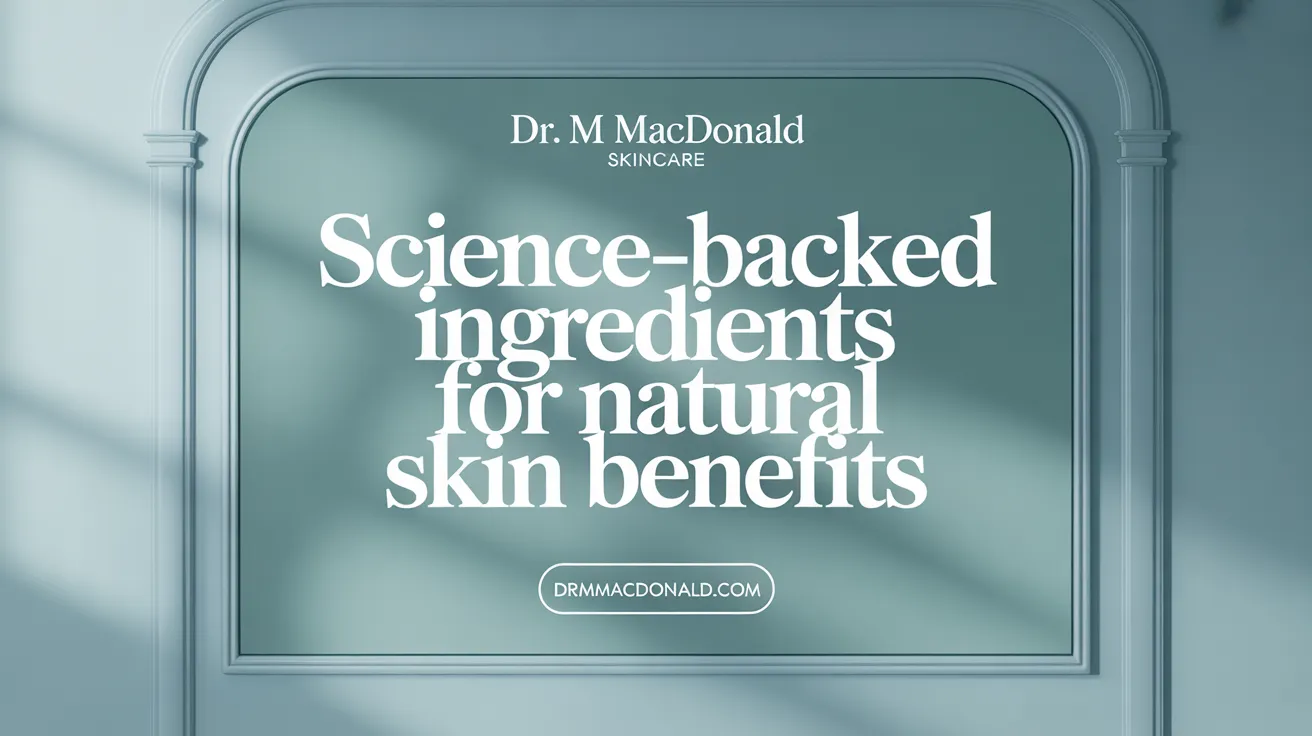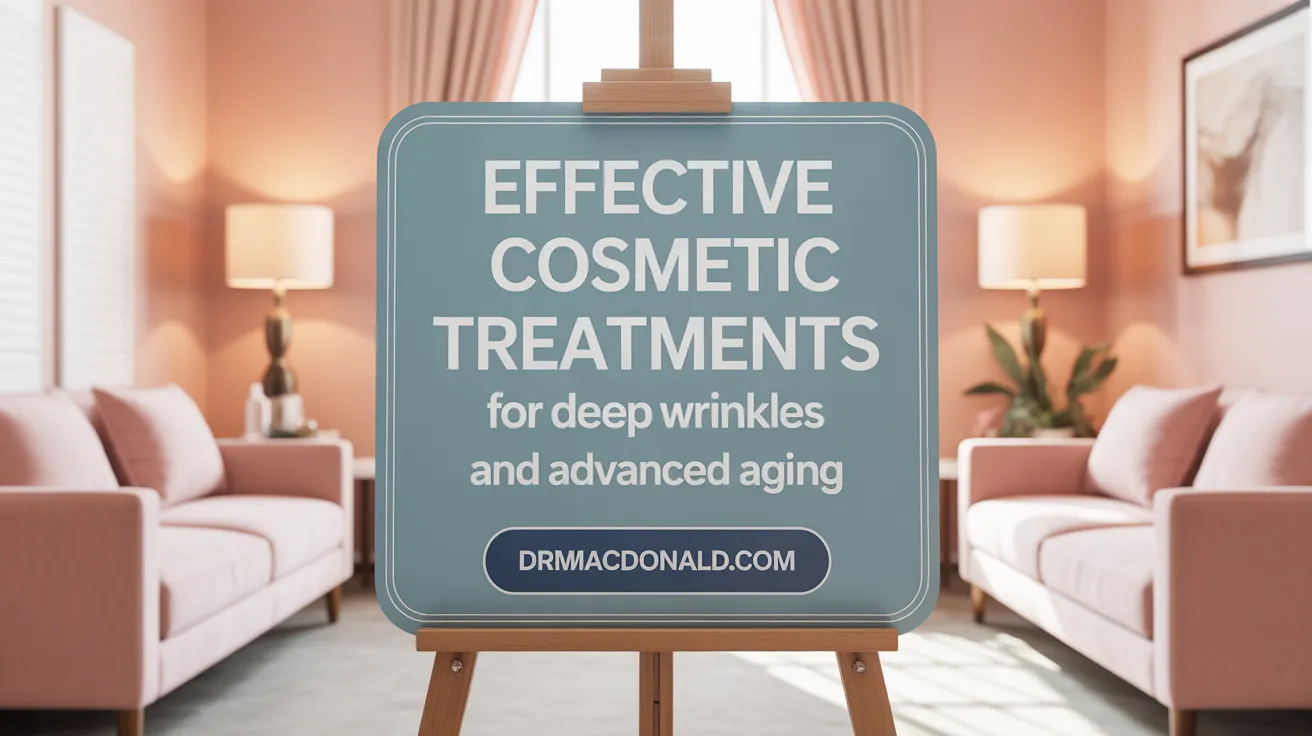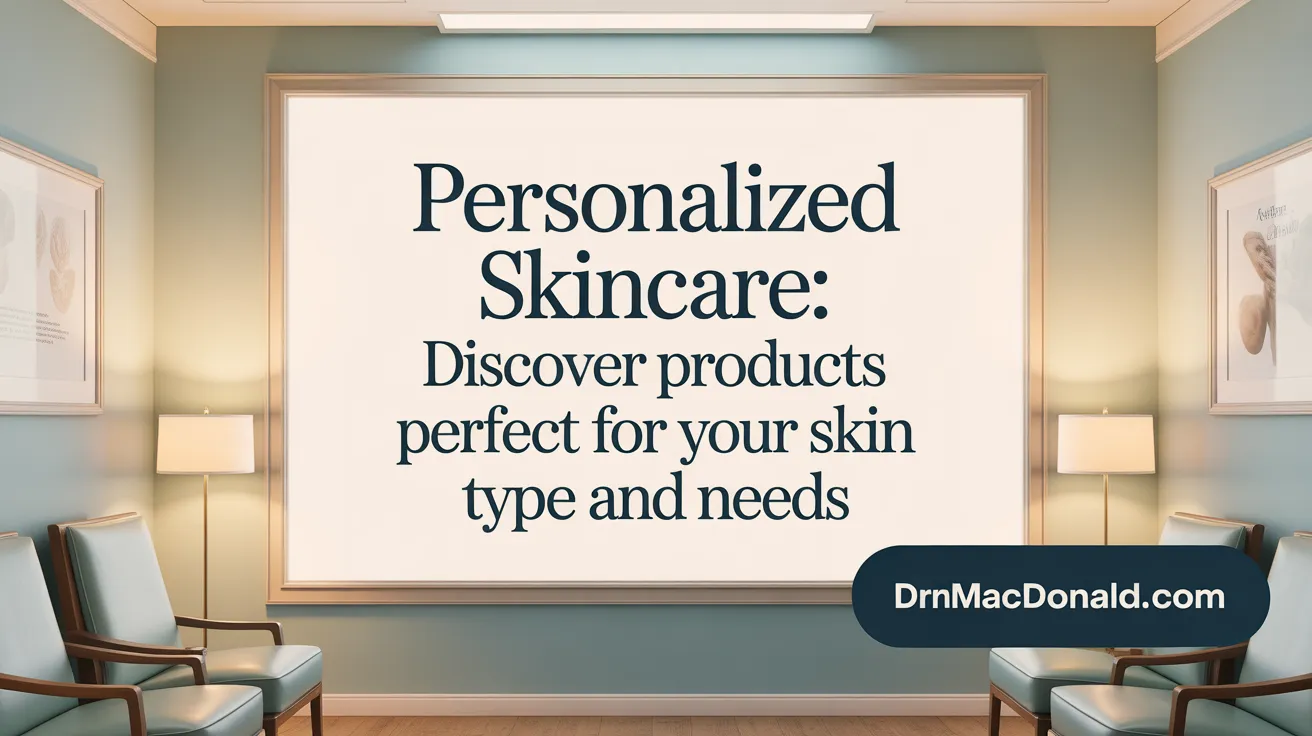Understanding the Promise and Science Behind Anti-Aging Products
As skin ages, visible changes such as fine lines, wrinkles, and loss of firmness become more noticeable due to natural declines in collagen, elastin, and hydration levels. Many seek products promising to reverse or slow these signs. However, not all anti-aging skincare products deliver real, scientifically backed results. This article explores how anti-aging products work, key ingredients proven to be effective, and expert-approved skincare routines designed to maintain youthful radiant skin. By demystifying the science and reviewing notable products, readers can make informed decisions grounded in evidence and dermatologist recommendations.
How Anti-Aging Skincare Products Work and Their Key Ingredients
How do anti-aging skincare products work and what are their key ingredients?
Anti-aging skincare primarily targets the biological processes that lead to skin aging, such as the breakdown of collagen and elastin, reduced skin hydration, and damage caused by environmental factors like UV exposure and pollution.
As we age, the skin's outer layer becomes thinner and less able to regenerate, resulting in visible signs such as fine lines, wrinkles, loss of firmness, dullness, and uneven skin tone. The decrease in collagen, a protein responsible for firmness and elasticity, is a major contributor to these changes.
Standard anti-aging products contain active ingredients that specifically address these mechanisms. For example, ingredients like retinoids (e.g., retinol, tretinoin) accelerate skin cell turnover and stimulate collagen synthesis, helping to reduce fine lines and promote a more youthful texture. Peptides are short chains of amino acids that support rebuilding of vital proteins like collagen and elastin, enhancing skin firmness.
Antioxidants such as vitamin C, vitamin E, and green tea extracts neutralize free radicals—unstable molecules generated by UV rays, pollution, and smoking—that cause oxidative stress damaging skin cells and accelerating aging.
In addition, UV filters in sunscreens protect the skin from UVA and UVB rays that cause premature aging and hyperpigmentation. Hydrating ingredients like hyaluronic acid and ceramides restore moisture, keeping skin plump and reducing the appearance of fine lines.
Overall, these ingredients work synergistically to support skin's natural repair processes, enhance elasticity, improve hydration, and protect against environmental damage, collectively helping to maintain a more youthful appearance.
| Ingredient Type | Examples | Main Effect | Additional Notes |
|---|---|---|---|
| Antioxidants | Vitamin C, Vitamin E, Green Tea | Neutralize free radicals, reduce oxidative stress | Brighten skin and protect from environmental damage |
| Retinoids | Retinol, Retinal, Tretinoin | Increase cell turnover, stimulate collagen production | Used at night; may cause irritation at first |
| Peptides | Collagen-boosting peptides | Promote collagen and elastin synthesis | Support skin firmness and elasticity |
| UV Filters | Zinc oxide, Avobenzone | Protect skin from UVA and UVB rays | Essential for daily use in sunscreens |
| Hydrators | Hyaluronic acid, Ceramides | Enhance skin hydration, improve barrier function | Make skin look plump and smooth |
In essence, effective anti-aging products combine these ingredients to address multiple aging factors, resulting in visible improvements in skin texture, firmness, and youthful radiance.
Proven Ingredients That Actually Improve Skin Appearance

Do any anti-aging products really work?
Yes, numerous anti-aging products can improve the appearance of the skin when formulated with scientifically supported ingredients. Ingredients like retinoids, vitamin C, peptides, hyaluronic acid, and growth factors have strong evidence demonstrating their ability to reduce fine lines, wrinkles, and age spots. These components work by stimulating collagen production, enhancing skin texture, and increasing hydration.
For instance, retinoids—derivatives of vitamin A—are considered the gold standard for anti-aging, as they promote cellular turnover and collagen synthesis. Vitamin C is a potent antioxidant that neutralizes free radicals, reduces damage from UV rays and pollution, and boosts collagen. Peptides and growth factors support skin rebuilding processes, helping to restore firmness and elasticity.
Consistent use of these ingredients, especially when combined with diligent sun protection, can lead to noticeable improvements. Although no topical product can completely halt the natural aging process, regular application of proven ingredients supports healthier, more youthful skin over time.
Retinoids vs retinol
Retinoids are prescription-strength compounds that include tretinoin, retinal, and adapalene. They are potent and require medical supervision for optimal safety and efficacy. Retinol, on the other hand, is a milder, over-the-counter derivative of vitamin A. It provides many of the benefits of retinoids but at a lower strength, reducing the risk of irritation.
While retinoids exert faster and more dramatic effects, retinol can still improve skin texture and fine lines with consistent use over several months. The choice depends on skin sensitivity, age, and specific skin concerns.
Role of vitamin C
Vitamin C plays a critical role in defending skin from environmental stressors and stimulating collagen synthesis. Its antioxidant properties help fight free radicals generated by sun exposure and pollution, which can accelerate aging. Products containing stable forms of vitamin C, such as L-ascorbic acid at 10-20%, are most effective.
Regular use brightens dull skin, reduces hyperpigmentation, and enhances skin firmness, making vitamin C an essential ingredient in anti-aging skincare routines.
Benefits of peptides and growth factors
Peptides are amino acid chains that signal skin cells to produce more collagen and elastin, proteins essential for skin firmness and elasticity. They help rebuild damaged skin and can diminish the appearance of fine lines.
Growth factors are proteins that stimulate skin cell growth and repair, supporting skin renewal and providing a more youthful appearance. Products containing these ingredients can enhance overall skin texture and firmness.
Moisturizers and hydration
Hydrated skin looks plumper, softer, and younger. Moisturizers containing hyaluronic acid and ceramides attract water to the skin, restoring the skin barrier and preventing dryness that accentuates fine lines.
While moisturizers do not directly reduce wrinkles, maintaining hydration supports overall skin health and improves the effectiveness of other anti-aging ingredients.
Importance of niacinamide and ceramides
Niacinamide (vitamin B3) reduces signs of aging by improving skin elasticity, evening skin tone, and diminishing discoloration. It also enhances barrier function, which is vital for preventing moisture loss. Cermides are lipids naturally found in the skin that help restore and maintain the skin's protective barrier. Using products with ceramides prevents water loss, reduces irritation, and supports skin resilience.
| Ingredient | Primary Benefits | Recommended For | Typical Products |
|---|---|---|---|
| Retinoids / Retinol | Collagen boost, fine line reduction | Aging skin, wrinkles | Serums, creams, prescription medications |
| Vitamin C | Antioxidant, brightening, collagen stimulation | Dull skin, hyperpigmentation | Serums, moisturizers |
| Peptides & Growth Factors | Skin firming, healing, regeneration | Sagging skin, fine lines | Serums, treatments |
| Hyaluronic Acid & Ceramides | Hydration, barrier repair | Dry skin, sensitive skin | Moisturizers, serums |
| Niacinamide & Ceramides | Skin tone, barrier strength | Discoloration, sensitive skin | Serums, creams |
Using these ingredients in a comprehensive skincare routine, combined with sun protection and healthy habits like quitting smoking, can visibly improve skin's appearance over time. Consulting with a dermatologist can help select the most suitable products based on individual skin needs.
The Crucial Role of Sun Protection in Anti-Aging
What impact does UV radiation have on skin aging?
Ultraviolet (UV) rays from the sun penetrate the skin, damaging collagen and elastin fibers that keep skin firm and elastic. Over time, this exposure leads to signs of premature aging such as wrinkles, fine lines, age spots, and skin discoloration. UV damage accelerates the breakdown of skin’s structural proteins, making sun protection essential to slow down these effects.
Why is broad-spectrum SPF important?
Broad-spectrum sunscreens protect skin against both UVA and UVB rays. UVA rays contribute to aging signs like wrinkles and loss of skin elasticity, while UVB rays primarily cause sunburn and can lead to skin cancer. SPF (Sun Protection Factor) indicates how well a product shields against UVB rays, with SPF 30 or higher recommended for effective defense.
How crucial is routine daily sunscreen use?
Consistent daily application of sunscreen, even on cloudy days, can significantly reduce premature skin aging. It prevents damage from everyday sun exposure, helping to maintain youthful skin tone and texture. Applying sunscreen as the last step in your morning skincare routine ensures maximum protection throughout the day.
What ingredients should sun protection products include?
Effective sunscreens contain active ingredients like zinc oxide, titanium dioxide, avobenzone, or oxybenzone that offer broad-spectrum protection. These ingredients create a physical or chemical barrier against UV rays. Look for formulations suitable for your skin type, whether oily, sensitive, or dry, and opt for water-resistant options if you plan outdoor activities.
How can sun protection be combined with other skincare routines?
Integrating sunscreen with other anti-aging products amplifies skin health benefits. Use treatments like retinoids, vitamin C serums, and moisturizers in the morning, followed by a broad-spectrum SPF. This layered approach not only shields the skin from UV damage but also enhances the effects of active anti-aging ingredients, supporting overall skin vitality.
| Aspect | Details | Additional Notes |
|---|---|---|
| UV Impact | Breaks down collagen, causes wrinkles and age spots | Long-term exposure leads to visible aging signs |
| SPF Level | Minimum SPF 30 recommended | Higher SPF offers better protection |
| Product Types | Lotions, sprays, sticks, tinted sunscreens | Choose according to skin type and preference |
| Application Tips | Apply generously, 15 minutes before sun exposure, reapply every 2 hours | Don't forget ears, neck, and hands |
| Combining Products | Use with antioxidants, moisturizers, retinoids | Enhances anti-aging results |
Establishing an Expert-Recommended Anti-Aging Skincare Routine
A well-rounded anti-aging skincare routine is essential to effectively combat signs of aging and maintain youthful, radiant skin. Dermatologists and skincare experts recommend starting with gentle cleansing and exfoliation, which help remove dead skin cells and prepare the skin for active ingredients.
During the day, applying a vitamin C serum can protect against environmental damage from pollution and UV rays, while also stimulating collagen production. Use a broad-spectrum sunscreen with at least SPF 30 as the final step in your morning routine to shield your skin from UVA and UVB rays that accelerate aging.
At night, incorporating retinoids or retinol products becomes crucial. These ingredients boost cell turnover, improve skin texture, and diminish fine lines. It’s important to introduce new products gradually, especially retinoids, to avoid irritation.
Moisturizing is vital throughout the day and night. Products containing hyaluronic acid, ceramides, and peptides help maintain hydration, support the skin barrier, and promote elasticity.
Layer your skincare carefully—apply lightweight serums first, followed by thicker creams or moisturizers. For optimal results, use products in the correct order: cleansers, serums, treatments, followed by moisturizers and sunscreens in the morning.
Adjust your routine based on your skin type. Oily or acne-prone skin may benefit from non-comedogenic formulations, while sensitive skin should opt for gentle, hypoallergenic options.
Overall, consistent daily application, patience, and choosing high-quality products with proven ingredients like retinoids, vitamin C, hyaluronic acid, peptides, and ceramides are crucial. Consulting with a dermatologist can help tailor routines to individual needs, ensuring effective anti-aging strategies.
| Skincare Step | Recommended Ingredients | Purpose | Additional Tips |
|---|---|---|---|
| Cleansing | Mild cleansers | Remove dirt & excess oil | Use lukewarm water, gentle strokes |
| Exfoliation | AHAs, enzymes | Remove dead cells | 2-3 times a week, avoid over-exfoliating |
| Day Serum | Vitamin C | Protect & brighten | Apply before moisturizer, after toning |
| Night Serum | Retinoids or retinol | Cell renewal & wrinkle reduction | Start with low concentration, increase gradually |
| Moisturizing | Hyaluronic acid, ceramides, peptides | Hydration & barrier support | Use twice daily, adjust for skin type |
| Sun Protection | SPF 30+ broad spectrum | Prevent UV-induced aging | Reapply every 2 hours during sun exposure |
Following this structured routine can help maintain healthy, youthful skin and slow down visible signs of aging. Regular assessment and adjustments over time ensure your skincare remains effective and suitable for your evolving skin needs.
Scientific Evidence Supporting Leading Anti-Aging Products
What anti-aging skincare products show evidence of delivering real results?
Many anti-aging products backed by scientific research have demonstrated tangible skin improvements. For instance, No7 Protect & Perfect Night Cream showed a 13% reduction in wrinkles after four weeks of consistent use, as measured by the Visia Complexion Analyzer. Similarly, SkinBetter Science's AlphaRet Overnight Cream boosted skin firmness by 28% and smoothed skin texture, according to clinical tests. Neutrogena’s Rapid Wrinkle Repair Daily Face Moisturizer with SPF 30 reduced dark spots by approximately 13.5% in just eight weeks, with additional benefits like skin firming and tone evenness.
These positive results come from products formulated with effective ingredients such as retinoids, peptides, antioxidants like vitamin C, and hyaluronic acid. The efficacy of these ingredients has been validated through controlled independent laboratory testing and clinical trials.
Testing methodologies typically involve dermatological assessments, skin imaging, and measurement of specific skin parameters like wrinkle depth, firmness, hydration, and pigmentation. These objective measures help confirm that improvements are due to the active ingredients rather than placebo effects.
Key products with proven data include not only moisturizing creams and night serums but also specialized treatments that target multiple signs of aging. The consistent application of these scientifically supported products, combined with protective measures like daily broad-spectrum SPF, yields the best results.
In sum, choosing anti-aging skincare backed by clinical evidence ensures that users are more likely to see noticeable, measurable changes in their skin, supporting the importance of science-driven formulations in achieving youthful, healthy skin.
Understanding the Limitations of Over-the-Counter Wrinkle Creams

Do any anti-aging products really work?
While numerous over-the-counter wrinkle creams feature ingredients like retinols, vitamin C, niacinamide, and bakuchiol, their effects are often modest. These products typically contain weaker formulations compared to prescription retinoids and rely heavily on consistent, long-term use to show results. Since they are classified as cosmetics, they do not require rigorous scientific testing for efficacy. Consequently, their ability to significantly reduce wrinkles or rejuvenate skin varies among individuals. Managing expectations and seeking professional advice from dermatologists can help determine when stronger or in-office treatments may be necessary.
Difference Between Cosmetics and Prescription Drugs
Over-the-counter anti-aging creams are considered cosmetics by the FDA, which means they are primarily intended to clean, beautify, or alter the appearance of the skin without claiming to treat or prevent medical conditions. Prescription drugs, including retinoids like tretinoin, are regulated more strictly and tested thoroughly for their efficacy and safety. These medications may deliver more noticeable results but also carry higher risks of side effects. Users should understand that cosmetic products generally provide only superficial improvements, while prescription options can offer deeper skin regeneration.
Key Active Ingredients in Anti-Aging Products
Common effective ingredients include:
| Ingredient | Purpose | Additional Notes |
|---|---|---|
| Retinoids | Boost collagen, promote cell turnover | Prescription retinoids are stronger than retinols |
| Vitamin C | Protects against free radicals, stimulates collagen | Brightens skin, reduces dullness |
| Niacinamide | Reduces discoloration, improves elasticity | Suitable for sensitive skin |
| Bakuchiol | Gentle retinol alternative | Safe during pregnancy, reduces signs of aging |
| Peptides | Support collagen and elastin production | Help firm and tighten skin |
| Hyaluronic Acid | Hydrates and plumps skin | Provides temporary smoothing effects |
Variability in Effectiveness
The results from OTC anti-aging creams depend on factors like ingredient quality, concentration, skin type, and adherence to the routine. Some users notice improvements in texture, hydration, or mild wrinkle reduction, but fully reversing signs of aging is unlikely with cosmetic products alone. The absence of strict regulation means that not all products contain the active ingredients listed or in effective amounts.
Importance of Realistic Expectations
While anti-aging creams can enhance skin appearance, they are not miracle solutions. Expect gradual improvements over months and understand that results vary. Products can help slow visible aging signs, but they won’t eliminate wrinkles entirely or provide dramatic transformations.
When to Seek Medical Advice
If you have deep wrinkles, significant sagging, or desire more noticeable results, consult a dermatologist. Medical procedures such as Botox, fillers, chemical peels, or laser treatments might be more effective. Additionally, if irritation or allergic reactions occur when using topical products, professional guidance is advisable to adjust or choose suitable therapies.
By understanding these limitations and the proper role of OTC products, consumers can make informed decisions and achieve better skin health.
Medical Treatments for Deeper Wrinkles and Severe Aging

What are scientifically supported treatments for deeper wrinkles?
For more pronounced signs of aging, such as deep wrinkles and significant skin sagging, topical products are often insufficient. Instead, dermatologists recommend various medical procedures that provide more substantial and lasting results.
One effective approach involves injectable treatments. Dermal fillers, such as hyaluronic acid-based products, can restore lost volume and smooth out deep lines. Botox injections work by relaxing the underlying muscles that cause dynamic wrinkles, like frown lines and crow’s feet, leading to a softer appearance.
Laser resurfacing is another highly regarded option. This technique uses focused light to stimulate collagen production, remove damaged skin, and promote newer, smoother skin. Types range from fractional lasers to intense pulsed light (IPL), depending on the severity and area.
Chemical peels and microneedling are also beneficial. Chemical peels exfoliate the top layers of skin to reveal fresher tissue underneath, reducing the appearance of age-related damage. Microneedling involves tiny needles creating controlled skin injuries, which trigger collagen and elastin production for skin renewal.
Prescription retinoids, such as tretinoin, are potent topical agents. They can improve fine lines, sun spots, and skin texture over time, especially when combined with procedural treatments.
Combining these approaches—professional procedures along with rigorous skincare—can lead to dramatic improvements beyond what topical products alone can achieve. The combination strategy adapts to individual skin conditions and aging severity.
| Treatment Type | Description | Expected Results | Additional Notes |
|---|---|---|---|
| Dermal Fillers | Injectables that add volume | Smoother deep wrinkles, restored facial contours | Requires repeat treatments every 6-12 months |
| Botox | Neurotoxin injections relaxing muscles | Softens dynamic lines | Best for lines caused by muscle activity |
| Laser Resurfacing | Light-based skin renewal | Improved skin texture, collagen boost | Downtime varies; requires a specialist |
| Chemical Peels | Chemical solution removing outer layers | Reduced wrinkles, improved tone | Multiple sessions often needed |
| Microneedling | Tiny needles causing controlled injury | Collagen stimulation, skin tightening | Suitable for all skin types |
| Prescription Retinoids | Topical vitamin A derivatives | Fine wrinkle reduction, skin renewal | Must be used consistently over months |
Consultation with a board-certified dermatologist is essential to determine the most suitable treatment plan for individual skin aging concerns. Combining procedures with topical skincare often yields the best results for deeper wrinkles and severe aging.
Choosing the Right Products Based on Skin Type and Concerns
 Selecting effective anti-aging skincare begins with understanding your unique skin type and specific concerns. Oily or acne-prone skin requires lightweight, oil-free formulations that won’t clog pores, while sensitive skin benefits from hypoallergenic and fragrance-free products designed to minimize irritation.
Selecting effective anti-aging skincare begins with understanding your unique skin type and specific concerns. Oily or acne-prone skin requires lightweight, oil-free formulations that won’t clog pores, while sensitive skin benefits from hypoallergenic and fragrance-free products designed to minimize irritation.
Reading labels carefully is essential. Look for proven active ingredients like retinoids, hyaluronic acid, peptides, and vitamin C, which can enhance skin firmness, hydration, and radiance. Avoid products with potential irritants such as alcohol, fragrances, or certain preservatives until your skin adapts.
Patch testing new products is a smart step to prevent reactions. Apply a small amount to an inconspicuous area and wait 48 hours to monitor for irritation or allergic responses. This practice is especially important when trying potent ingredients like retinol or acids.
Choosing hypoallergenic and non-comedogenic options can reduce the risk of breakouts and allergic responses. These formulations are designed to be gentle yet effective, making them suitable for sensitive or reactive skin types.
When selecting anti-aging products, consult with a dermatologist to tailor your routine. They can recommend the best formulations and concentrations based on your skin’s needs, helping you achieve visible improvements without adverse effects.
| Skin Type | Recommended Product Features | Active Ingredients to Look For | Additional Tips | |--------------|------------------------------|-----------------------------------|----------------| | | Oily Skin | Oil-free, non-comedogenic | Niacinamide, hyaluronic acid, peptides | Use mattifying sunscreens | | Sensitive Skin | Fragrance-free, hypoallergenic | Ceramides, niacinamide, gentle retinoids | Patch test before use | | Dry Skin | Hydrating, rich textures | Hyaluronic acid, glycerin, ceramides | Keep skin well-moisturized | | Normal Skin | Balanced formulations | Antioxidants, retinol, peptides | Maintain daily routine |
Incorporate broad-spectrum SPF 30 or higher daily for added protection. Consistency and patience are vital—visible results usually appear after a few months of diligent use.
Maximizing Anti-Aging Benefits Through Lifestyle and Skincare Synergy

What should I look for when choosing effective anti-aging skincare options?
Selecting the right anti-aging products involves more than just picking the most advertised item. Effective options contain scientifically backed ingredients like retinoids, hyaluronic acid, peptides, vitamin C, and ceramides. These ingredients help stimulate collagen, hydrate, and repair skin.
However, overall skin health also depends heavily on lifestyle choices. Quitting smoking plays a vital role because tobacco accelerates skin aging and causes wrinkles. Adequate sleep fosters skin repair and regeneration, essential for a youthful appearance.
A balanced, nutrient-rich diet packed with antioxidants supports skin from within. Foods high in vitamins C and E, omega-3 fatty acids, and other nutrients can reduce damage from free radicals.
Consistency is crucial. Using products as directed, typically over several months, enhances efficacy. Regular sunscreen with broad-spectrum SPF at least 30 helps prevent further sun damage, which is the leading cause of premature aging.
Having realistic expectations is necessary. Even the best products and habits can only slow aging, not stop it. Visible improvements often take time, generally three months or longer.
In summary, combining scientifically proven skincare with healthy lifestyle habits creates the most effective anti-aging strategy. Regular use of high-quality products, sun protection, good sleep, and proper nutrition work together to promote healthier, youthful skin.
The Path to Youthful Skin: Science, Consistency, and Realistic Care
Effective anti-aging skincare is grounded in science and realistic expectations. Products containing proven ingredients—retinol, vitamin C, peptides, and hyaluronic acid—supported by rigorous clinical testing can visibly improve wrinkles, firmness, and skin tone. Central to any anti-aging strategy is daily broad-spectrum sun protection, preventing further damage that accelerates aging. Combining carefully chosen topical treatments with dermatologist-guided routines and medical interventions when needed offers the best chance to maintain radiant, healthy skin. Ultimately, patience, consistent care, and lifestyle choices form the cornerstone of visibly youthful skin as we age.
References
- 20 best anti-aging products, per dermatologists | CNN Underscored
- Anti-Aging Skincare - ZO Skin Health
- Wrinkle creams: Your guide to younger looking skin - Mayo Clinic
- 10 Best Wrinkle Creams That Actually Worked in Our Lab Tests
- Anti-Aging Skincare | Skin Concern - Clinique
- Best Anti-Aging Skin Care Ingredients - WebMD
- Anti-Aging Skincare for All Skin Types - La Roche-Posay
- Best Ingredients and Products for Your Anti-Aging Skin Care Routine
- Anti-Aging Skincare & Treatments - Murad
- How to select anti-aging skin care products
